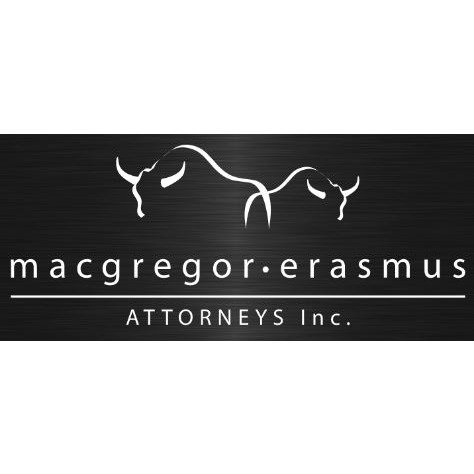Best Property Insurance Lawyers in Cape Town
Share your needs with us, get contacted by law firms.
Free. Takes 2 min.
List of the best lawyers in Cape Town, South Africa
About Property Insurance Law in Cape Town, South Africa
Property insurance in Cape Town, South Africa, involves coverage that protects homeowners and property investors against potential financial losses from damage or destruction to their property. This can include residential buildings, commercial properties, and other types of real estate. The insurance policies typically cover perils such as fire, theft, and certain natural disasters. Understanding the legal framework governing these policies is essential for property owners to ensure they are adequately covered. Local regulations also dictate certain terms within these policies, affecting how claims are processed and the extent of coverage.
Why You May Need a Lawyer
There are several situations where you might require legal assistance concerning property insurance:
- Claim Denials: If your insurance claim has been denied unfairly, legal advice can help determine if you have grounds to appeal the decision.
- Dispute Resolution: Disagreements over policy interpretations or settlements can often require mediation or legal intervention.
- Policy Review: Lawyers can provide professional insight into reviewing your insurance policy to ensure it matches your specific needs.
- Fraud Allegations: If you're accused of providing false information for a claim, legal defense may be necessary.
- Understanding Liability: Clarifying the extent of your coverage and any potential liabilities that your policy may not cover.
Local Laws Overview
The legal framework around property insurance in Cape Town is influenced by both national and local regulations. The chief legislation includes:
- Insurance Act: Governs the conduct of insurance businesses and the rights and obligations of insurers and policyholders.
- Consumer Protection Act: Protects consumers against unfair business practices, and provides for consumer rights in which insurance policies are involved.
- Financial Advisory and Intermediary Services (FAIS) Act: Regulates financial service providers, including insurance brokers, ensuring they are qualified and treat consumers fairly.
Understanding these laws can aid policyholders in knowing their rights and obligations, particularly regarding filing claims and handling disputes.
Frequently Asked Questions
1. What types of property insurance are available in Cape Town?
Common types of property insurance include homeowner's insurance, business property insurance, and renters insurance, each offering various coverage levels and protection.
2. Does property insurance cover natural disasters?
While some property insurance policies cover certain natural disasters, it is crucial to review your policy details, as coverage can vary greatly across different insurers.
3. Can I challenge an insurance claim denial?
Yes, if you believe your claim was wrongfully denied, you can appeal the decision. Legal assistance can help assess your case and guide you through the appeal process.
4. Are there any specific exclusions I should be aware of?
Policies typically exclude coverage for normal wear and tear, intentional damage, and certain natural disasters. Always review your policy for specific exclusions.
5. How are insurance premiums determined?
Premiums are calculated based on factors such as property location, value, usage, and risk exposure. Insurers will assess these to determine the cost of coverage.
6. What should I do if I suspect fraud by the insurance company?
Consult a legal professional to help investigate your claims and consider reporting the issue to the Insurance Crime Bureau or the Financial Sector Conduct Authority.
7. Is landlord insurance different from homeowner's insurance?
Yes, landlord insurance typically covers additional liabilities related to leasing a property, such as loss of rental income or tenant-caused damage.
8. How can I ensure my property is adequately insured?
Have your property valued accurately, review your coverage regularly, and consult with an insurance advisor or legal professional if needed.
9. Are there penalties for underinsurance?
Underinsuring your property can lead to significant out-of-pocket expenses if a claim surpasses your coverage limits. It's crucial to ensure your property is fully covered.
10. How do local building codes affect property insurance?
Building codes dictate safety standards that can impact insurance eligibility and premiums. Non-compliant properties may face higher premiums or be denied coverage.
Additional Resources
Here are some resources that can be helpful if you need assistance with property insurance:
- Financial Sector Conduct Authority (FSCA): Regulates financial institutions including insurers and protects consumers.
- Insurance Crime Bureau (ICB): Investigates and combats insurance fraud in South Africa.
- South African Insurance Association (SAIA): Provides information and support regarding insurance products.
Next Steps
If you find yourself needing legal assistance with property insurance, consider the following steps:
- Research: Gather all relevant documents such as your insurance policy, correspondence, and any evidence that supports your case.
- Consultation: Reach out to a legal professional specializing in property insurance for a consultation to discuss your situation and understand your options.
- Legal Representation: If your issue cannot be resolved through negotiations or appeals, consider engaging a lawyer who can represent you in legal proceedings.
Lawzana helps you find the best lawyers and law firms in Cape Town through a curated and pre-screened list of qualified legal professionals. Our platform offers rankings and detailed profiles of attorneys and law firms, allowing you to compare based on practice areas, including Property Insurance, experience, and client feedback.
Each profile includes a description of the firm's areas of practice, client reviews, team members and partners, year of establishment, spoken languages, office locations, contact information, social media presence, and any published articles or resources. Most firms on our platform speak English and are experienced in both local and international legal matters.
Get a quote from top-rated law firms in Cape Town, South Africa — quickly, securely, and without unnecessary hassle.
Disclaimer:
The information provided on this page is for general informational purposes only and does not constitute legal advice. While we strive to ensure the accuracy and relevance of the content, legal information may change over time, and interpretations of the law can vary. You should always consult with a qualified legal professional for advice specific to your situation.
We disclaim all liability for actions taken or not taken based on the content of this page. If you believe any information is incorrect or outdated, please contact us, and we will review and update it where appropriate.












